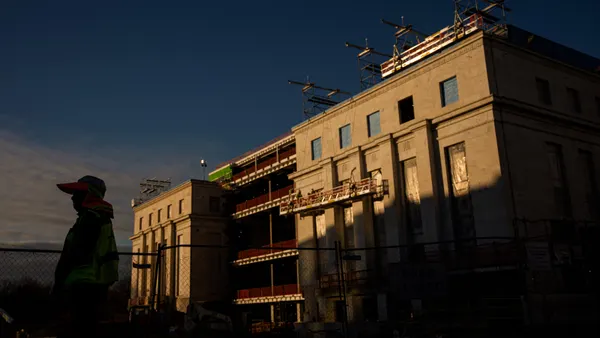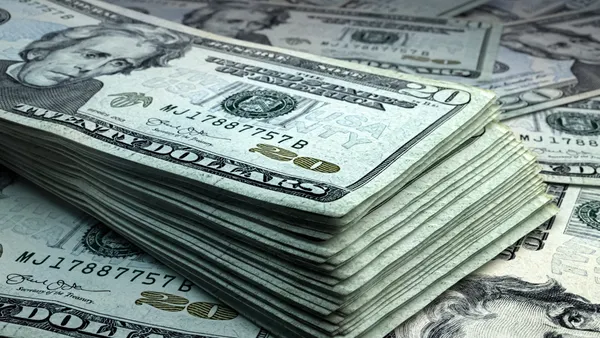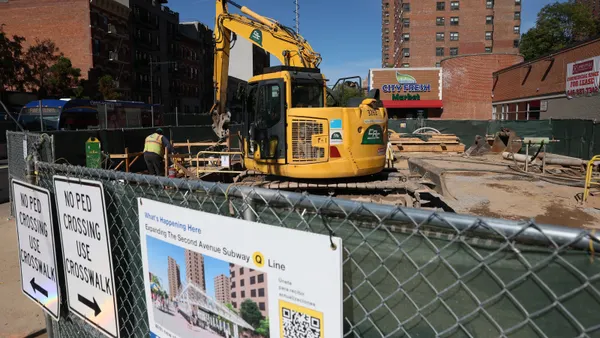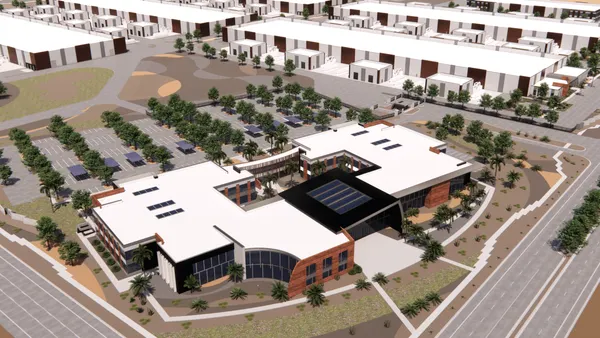Dive Brief:
-
Despite rhetoric from lawmakers about plans to fix the nation's roads, bridges and other public assets, infrastructure spending in Q2 2017 was, at 1.4% of total U.S. economic output, at its lowest recorded level, The New York Times reported.
-
Infrastructure investment was lower in 34 states last year than it was in 2007. The federal government is also struggling to keep the Highway Trust Fund full with the current 18.4-cents-per-gallon national gas tax. Raising the tax to 31 cents per gallon is necessary to make a dent in surface transportation work.
-
Congress awaits details on President Donald Trump's $1 trillion infrastructure plan, but the labor shortage and Republicans' and Democrats' inability to reach a consensus on many other issues has the potential to sideline that initiative.
Dive Insight:
There is no shortage of big infrastructure plans — just the funding to execute them. While the federal government has been hesitant to raise the gas tax, although that sentiment seems to be shifting, states are beginning to increase their own gas taxes to finance infrastructure programs.
Earlier this year, California lawmakers, who are facing a $130 million backlog of highway, bridge and other infrastructure repairs, passed a 12-cents-per-gallon increase to the state's gas tax to help fund a new $52 billion infrastructure program. Indiana also raised its gas tax by 10 cents per gallon to help fund $4.7 billion in infrastructure spending.
What the industry does know about Trump's $1 trillion program is that he wants to use private equity investors to finance the majority of it. Republicans, who for years have pushed back against direct government spending on infrastructure, could get on board with the president's strategy, but Democrats have vowed to block any plan that privatizes a national rebuilding program.
Rep. John Larson (D-CT), is the latest to suggest an infrastructure financing plan. This week he said he would introduce legislation after the August congressional recess to raise $1.8 trillion through a $49-per-ton tax on carbon emissions from coal, oil and natural gas. Larson said $1 trillion would go toward infrastructure and the rest would be used to offset the resulting higher energy prices for consumers.













